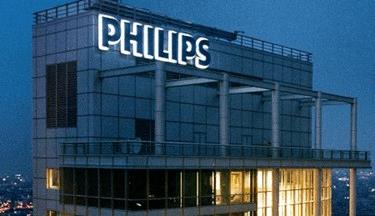Philips Launches Remote Care Solution For Seniors, Investigates At-Home Care Platforms For MCI Patients

Philips has partnered with at-home senior care provider Right at Home to commercially launch CareSensus, a biosensor platform that can work together with in-home care services to offer a blended and more affordable approach to senior living. The solution is expected to offer 24/7 monitoring that adjusts to the individual’s needs, and advanced analytics that could detect a potential problem earlier than the objective observation of a caregiver.
The Alzheimer’s Association reports that one in nine people over the age of 65 has Alzheimer’s disease, and 13 percent of Americans aged 45 years and older reported worsening confusion and memory loss. The estimated annual cost of healthcare, long-term care, and hospice for patients with Alzheimer’s disease and other dementias is approximately $226 billion.
An aging population has put added pressure on the industry to develop innovative options for in-home care that can reduce the burden on both the healthcare system and unpaid caregivers, who offer 17.9 billion hours of care per year.
Philips’ CareSensus platform uses non-camera based sensors, placed strategically throughout an individual’s home, to track the patient’s daily activity, including meals, medication adherence, and bathroom trips. Both the Right at Home care team and family caregivers are given access to a dashboard where they can monitor the individual’s daily habits and receive alerts of any troubling changes in the patient’s routine. Seniors also have the option of communicating with their caregivers through video chat.
Brian Petranick, CEO and president of Right at Home, noted that the global population of people over 60 is outpacing available caregivers. He said a blended approach of hands-on care and advanced data analytics will drive the future of in-home healthcare.
“By 2025, there will be nearly 1.2 billion people over the age of 60 worldwide,” said Petranick in a press release. “As the need for caregivers across the globe exceeds supply, this partnership with Philips and the use of its innovative technology will help our clients in a revolutionary way.”
Jeroen Tas, CEO of Connected Care and Health Informatics at Philips, noted the company’s 40-year history in support care for seniors and commented that the blended solution will provide more tailored, expert care for seniors wanting to retain their independence. At this time, the commercial launch of CareSensus is limited to 25 locations nationwide.
Philips also recently received a grant from the Veterans Health Association (VA) to research and develop at-home care solutions for veterans with mild cognitive impairment (MCI). The VA grant will be used to investigate whether ambient assisted living (AAL) solutions currently used to monitor patients with chronic conditions, such as heart failure or diabetes, would be practical and effective for MCI patients.
“Public-private partnerships such as these grants and the collaboration with MyVA and the VA Brain Trust and its partners are key to unlocking the independence and health of this most important segment of our society,” said Hans-Aloys Wischmann, head of research for Philips North America, in a press release.
Across the Atlantic Ocean, the U.K.’s National Health Service (NHS), along with partners Philips, Verily, and IBM, has launched a series of “test beds” to further develop remote-monitoring solutions for various chronic conditions, as well as at-home senior care.
NHS chief executive Simon Stevens commented that next-generation healthcare breakthroughs will be the result of blending biosensors, mobile communication, and artificial intelligence with traditional drug and device technology. The NHS recently invested $6 billion to further digitize the U.K.’s universal health system.
